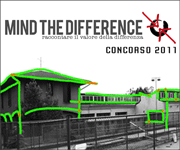Workflow Management Guidelines in Zoho CRM
February 14th, 2023Workflow control rules are crucial for enabling your employees to record, monitor, and track demands across organization ops, customer service, development, invest, HR, IT, legal, promoting, revenue, and more. Personnel can get intuitive websites and community shared forms to submit new needs that are automatically routed to Admin, THAT, HR, or perhaps Finance teams based on workflow routing rules.
Types of workflows
There are three various kinds of workflows you could create in Zoho CUSTOMER RELATIONSHIP MANAGEMENT – sequential, seite an seite, and rules-driven. Sequential workflows progress along a pre-defined path, whereas parallel workflows can be discussed concurrently to maneuver the task toward conclusion.
Rules-driven workflows are the most complex type of work flow that use a kind of “if this, then that” logic to structure the process. For instance , if you have a checklist of tasks that your customers need to complete, you are able to build an automatic rule that executes each step of the process if it is accomplished successfully.
Record Create Action/Condition: Once you have developed workflow management efficiency workflow rules, you can set up an action that triggers any time a new record is created in Zoho CUSTOMER RELATIONSHIP MANAGEMENT. It can be an instant action (when the record is created), or a time-based action (when the record is done or modified).
Criteria Routine Editor: Conditions pattern manager can help you develop advanced filtration systems using simple logical employees like or. It enables one to specify a maximum of 25 requirements for a list view.
When you have created a work rule, you are able to associate signals, tasks, discipline updates, webhooks and custom functions to it. You can build a maximum of some alerts, some tasks, five field updates, 5 webhooks and 5 custom capabilities per workflow procedure.
Posted under: Uncategorized

